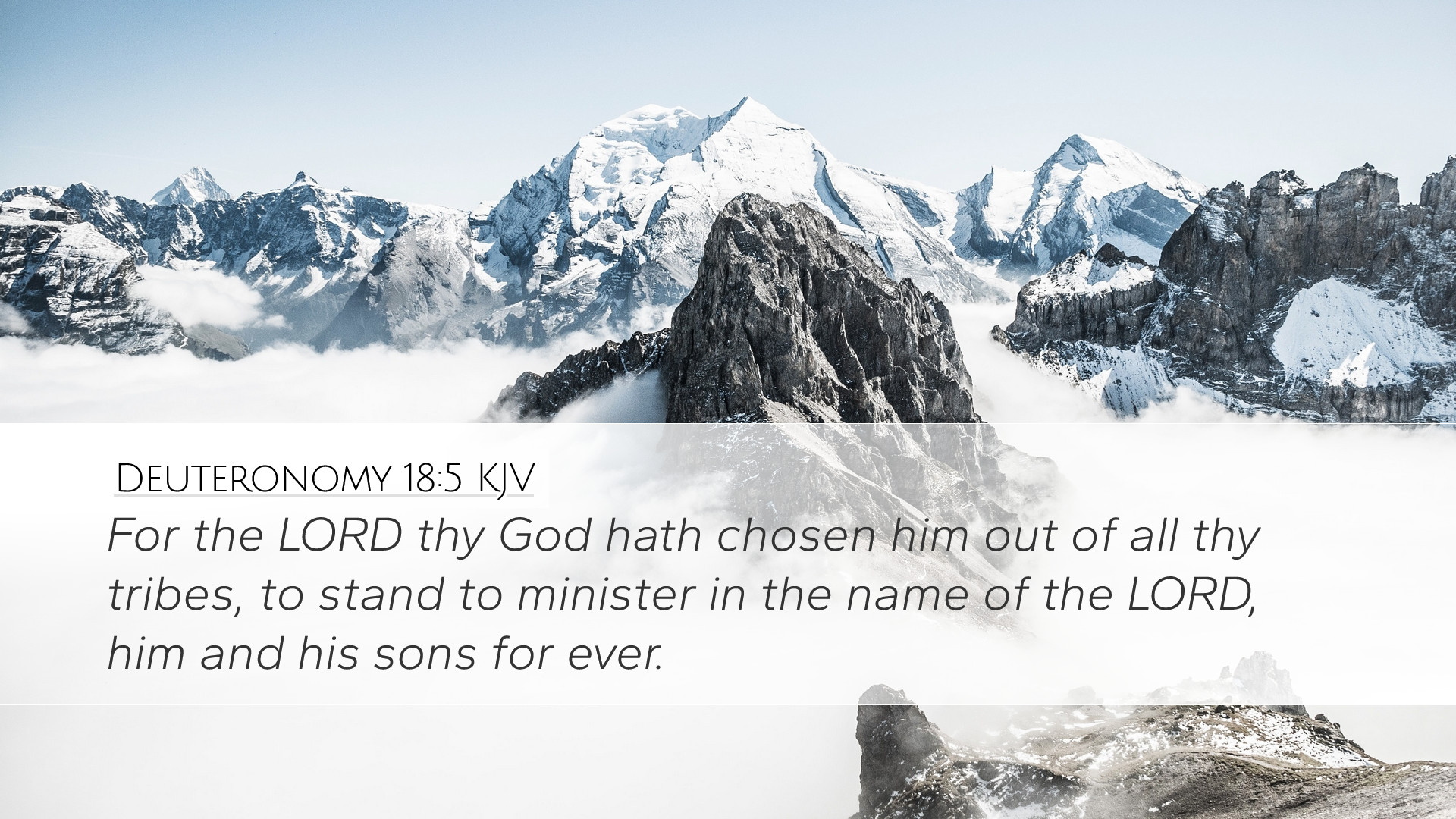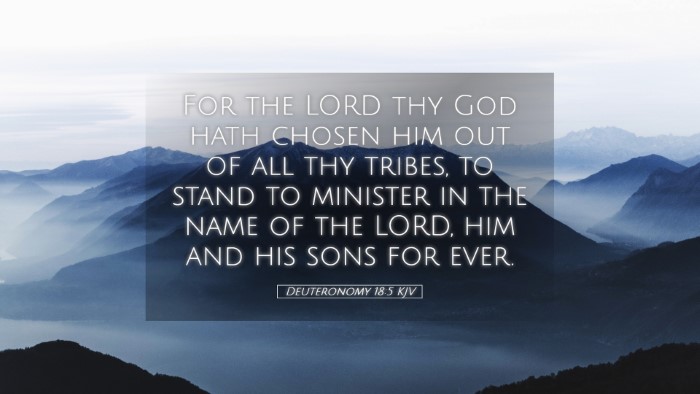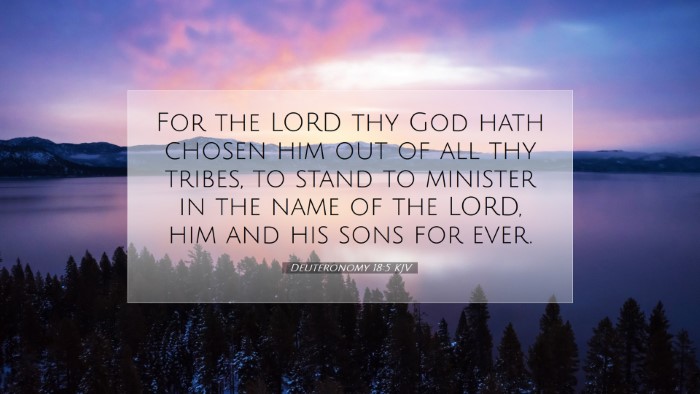Commentary on Deuteronomy 18:5
Verse: "For the Lord thy God hath chosen him out of all thy tribes to stand to minister in the name of the Lord, him and his sons forever."
Overview
Deuteronomy 18:5 addresses the institution of the Levitical priesthood, emphasizing God's sovereign choice in designating the tribe of Levi for sacred service. This passage draws attention to the importance of the priestly role within the community of Israel and highlights themes of divine selection and faithfulness.
Contextual Background
This verse occurs within a larger discourse where Moses provides instructions about the responsibilities of the priests and Levites. The backdrop includes the Israelites' imminent entry into the Promised Land, necessitating a clear understanding of worship and ministry within their new context.
Theological Significance
- Divine Election: Matthew Henry emphasizes that God's choice of individuals for specific roles is an act of divine sovereignty. The Levites were chosen, not for their merit, but as a part of God's divine plan.
- Ministry and Mediation: Albert Barnes notes that the Levites' role as mediators between God and the people was crucial. Their ministry was essential for maintaining the covenant relationship between Yahweh and Israel.
- Perpetuity of the Priesthood: Adam Clarke highlights the continuity of the Levitical priesthood, indicating that God’s selection was not merely for a time, but intended to last for generations to come, embedding a sense of stability and reliability in Israel's worship practices.
Commentary Insights
According to Matthew Henry, the significance of God's choice is profound. He observes that the Levites were separated from the other tribes to serve a particular purpose. This separation underscores the holiness associated with their calling. The ministry of these priests symbolizes the need for mediation between sinful humanity and a holy God, foreshadowing the ultimate Priest, Jesus Christ.
Albert Barnes elaborates on the role of Levites, indicating that the priests were to represent the people before God and intercede for them. This role of representation was vital for the spiritual health of the nation. Barnes argues that the priestly ministry included teaching the law and maintaining the proper worship of God, which is foundational for Israel's identity as a covenant people.
Adam Clarke provides valuable insight into the hereditary nature of the priesthood. He remarks that God's selection of Aaron and his descendants underscores the importance of lineage in worship. Clarke emphasizes that God’s choice assures the people that their leaders in worship are divinely appointed and equipped for their tasks.
Application for Pastors and Theologians
This verse offers critical insights for modern ministry and ecclesiology.
- Understanding Divine Call: Pastors and church leaders should reflect on the nature of their calling. Just as the Levites were chosen by God, contemporary leaders must recognize their ministry as a divine appointment, requiring humility and dedication.
- The Role of Ministry: The emphasis on the Levitical role serves as a reminder for church leaders to prioritize their duties in teaching, interceding, and engaging the community in worship. The commitment to guide congregational life remains vital.
- Encouragement in Ministry: The reminder that God's selection is intentional encourages leaders facing challenges in their ministries. They can draw confidence from God's providence and faithfulness in their vocational paths.
Conclusion
Deuteronomy 18:5 encapsulates profound truths regarding God's sovereignty and the priestly function within the community of faith. By examining this verse through the insights of traditional commentaries, modern readers can gain a richer understanding of the importance of divinely appointed leadership and the enduring significance of ministry in the lives of God’s people. This selected priesthood, while rooted in ancient Israel, points forward to the ultimate high priest, Jesus Christ, who fulfills and surpasses this role in the New Covenant.


